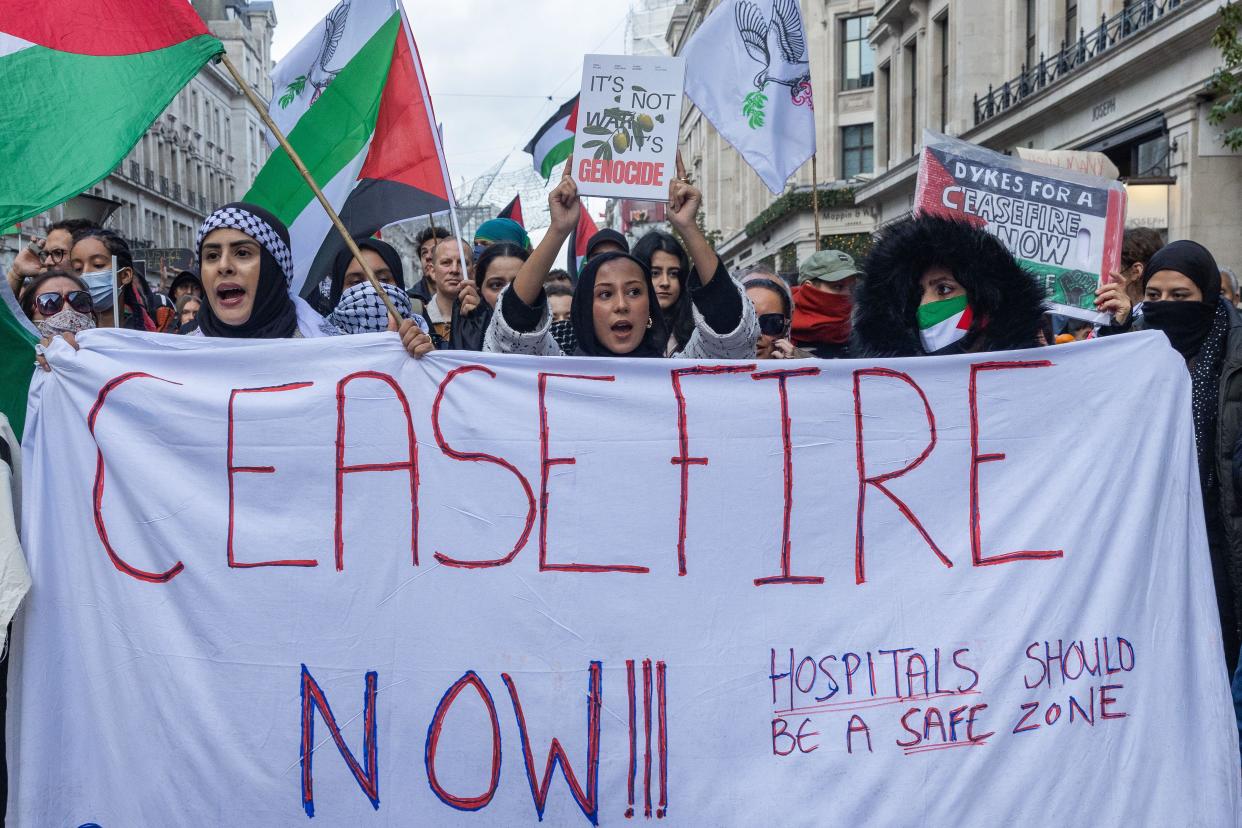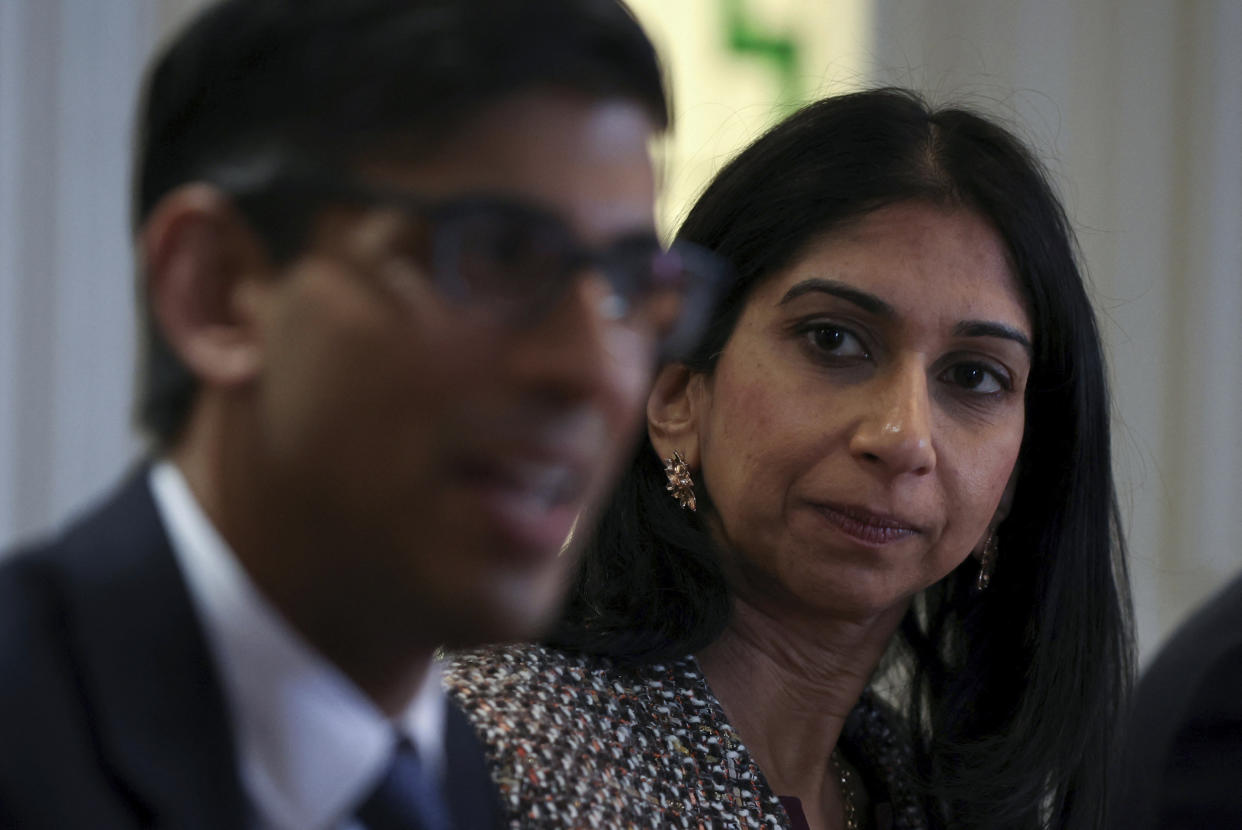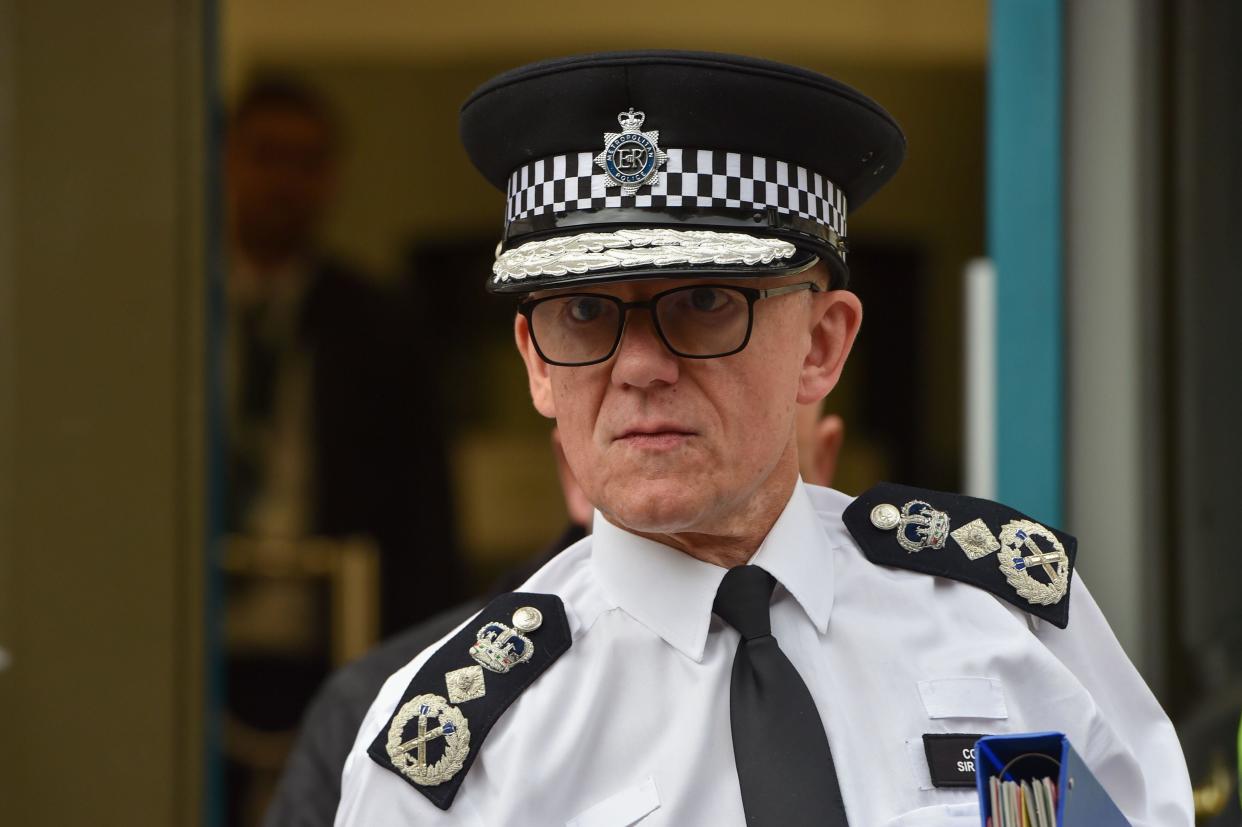Pro-Palestine march: What the police - and Suella Braverman - can and can’t do

People planning to attend the Pro-Palestine march on Saturday have the legal right to express support for the Palestinian people and criticise the actions of Israel through protests, according to human rights organisation Liberty.
Tens of thousands of people have attended demonstrations since the violence escalated in Gaza last month and march organisers are hoping for a bigger turnout this weekend.
Saturday's protest in central London will coincide with Armistice Day when veterans gather at the Cenotaph to honour those who served and sacrificed for Britain.
This has sparked calls from home secretary Suella Braverman for the protests to be banned - Met Police chief Sir Mark Rowley has said the law would only allow him to do so only in “extreme cases” and Saturday's march does not meet that threshold.
Recommended reading:
Pro-Palestine protest - latest news: Braverman branded 'unhinged' over march views
Revealed: Exact route pro-Palestine march will take on Armistice Day
Protest groups, including the Palestine Solidarity Campaign and the Stop The War Coalition, have confirmed they do not intend to march near Whitehall to avoid disrupting events at the Cenotaph. Instead, their protest will follow a route from Hyde Park to the US Embassy, starting at 12pm.
Organisers of the proposed march have refused the Metropolitan Police's request to postpone their rally on Saturday.
Campaigners say the right to protest is protected by the European Convention on Human Rights (ECHR) and the Human Rights Act (HRA) 1998 in the UK, which gives the freedom to assemble.
Saturday's protest

Braverman has been a vocal critic of chants at the protests so far, labelling phrases like "jihad jihad" and "from the river to the sea, Palestine will be free" as antisemitic.
Organisers argue that these chants are calls for liberation, not incitements to violence.
Rishi Sunak has also deemed this weekend's march as "provocative" and "disrespectful" to hold it on 11 November.
Their comments have raised concerns over politicians being seen to be overtly meddling in the planned demonstration.
"We all have the right to stand up and make our voices heard on the issues that matter to us. It’s really worrying seeing this government ramp up its anti-protest rhetoric and pile enormous pressure on the police to cancel Saturday’s pro-Palestine demonstration this weekend," Liberty's policy and campaigns officer Jun Pang told Yahoo UK News.
"Currently, people’s protest rights are still the same: the march has not been banned, and you have the right to protest this weekend.
The police also have no power to ban a static assembly, she added. Chanting "from the river to the sea" or waving a Palestinian flag does not constitute a terrorism or public order offence, Liberty says on its website.
What are your rights to protest?
Article 11 under the ECHR provides the freedom of protests, marches and demonstrations, counter-demonstrations, press conferences, public and private meetings.
It does not protect intentional violent protest.
Even if a government disagrees with protesters’ views, or where a protest risks tense exchanges between opposing groups, the state cannot interfere with the right to protest.
Instead, it must take reasonable steps to enable people to protest and to protect participants in peaceful demonstrations, according to Liberty.
“Shutting down a protest would be a shocking breach of our right to freedom of expression, and would only serve to create even greater division," said Pang, "Threats to use dystopian facial recognition make this a toxic cocktail of human rights abuses."

What to do if you are stopped by police
Despite political pressure, the police have stated that there are insufficient grounds for a legal ban on the march, but are concerned about potential public disorder during Remembrance weekend due to far-right groups and football hooligans planning counter-protests.
The police must act in a way that respects people's rights and can be held accountable in UK courts if they violate people's rights, says Liberty.
They also have an obligation, based on ECHR Articles 10 and 11, to facilitate protests whenever possible.
From refusing to answer a general question from the police and legally walking away, what to do if you are stopped and searched and never to provide false information, Liberty has put together a 60-second video of your right to protest.
Going to a protest? It’s essential to have a solid grasp of your rights. The animated video below will clue you up.@libertyhq also offer a valuable explainer: https://t.co/04cwVJAb2ypic.twitter.com/sTJCSzfYpx
— Christian Weaver (@ChristianKamali) November 4, 2023
Liberty advises if anyone is arrested at a protest the police can ask for their name and address if they suspect anti-social behaviour, the person must provide this information.
Apart from that, a person is not obliged to give personal details, even during booking at the police station.
"Answer 'No Comment' to the police at all times until you’ve had legal advice from a solicitor with special knowledge about protests," advises Liberty on their website.
Additionally, people are not legally obliged to disclose their immigration status, but the police might check it if suspicious. Liberty has stressed it's wise to plan ahead with friends and have legal support contacts in case if attending a protest.
Check the Liberty site for information on advice on protest rights at Palestine demonstrations.
Watch:Yousaf: Pro-Palestinian marches on Armistice Day should ‘absolutely’ go ahead


